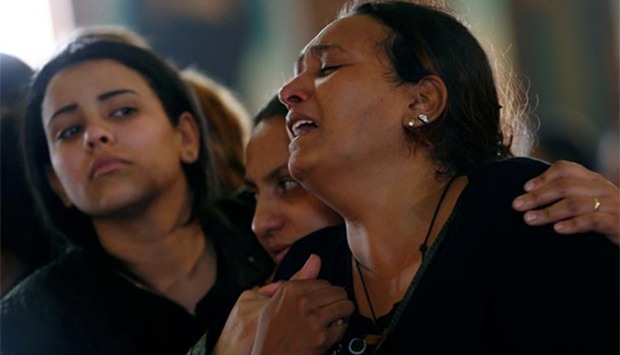Egypt's parliament on Tuesday unanimously approved a three-month state of emergency declared by President Abdel Fattah al-Sisi after deadly church bombings, state-run Nile News television reported.
The measure was published in Egypt's official gazette on Monday and said to have come into effect at 1:00 pm the same day, after 45 Coptic Christians were killed in Sunday's twin bombings.The Islamic State group said it was behind the bombings at churches in the cities of Tanta and Alexandria, and threatened further attacks against Egypt's Christian minority.
Prime Minister Sherif Ismail told lawmakers before the vote in a televised speech that the measure was needed to empower the state to take necessary measures against proponents of violence.
Sunday's first bombing at the Mar Girgis church in Tanta, north of Cairo, killed 28 people.
The second struck outside Saint Mark's church in Alexandria, killing 17 people after a suicide bomber was prevented from entering the building.
The violence comes ahead of Catholic Pope Francis's first trip to Egypt, which a Vatican official said will proceed as planned on April 28 and 29 despite the attacks.
The presidency said on Tuesday that the Supreme Council to Combat Terrorism and Extremism, announced by Sisi on Sunday, would put together a strategy to fight terrorism.
The council comprising government officials would be supported by committees of public figures and experts in various fields, the presidency said in a statement.
The committees would monitor "terrorist organisations" as well as "propose security and legal mechanisms to confront them", it said.
Following Sunday's attacks, mourners criticised security measures at churches, asking how could a bomb have been allowed to enter and pass through metal detectors at the gates, especially as IS has threatened their community.
Copts, who make up about one tenth of Egypt's population of more than 92mn, have been targeted several times in recent months.
Jihadists groups such as IS, and Islamists accuse Copts of supporting the military overthrow of Islamist president Mohamed Mursi in 2013, which ushered in a deadly crackdown on his supporters.

